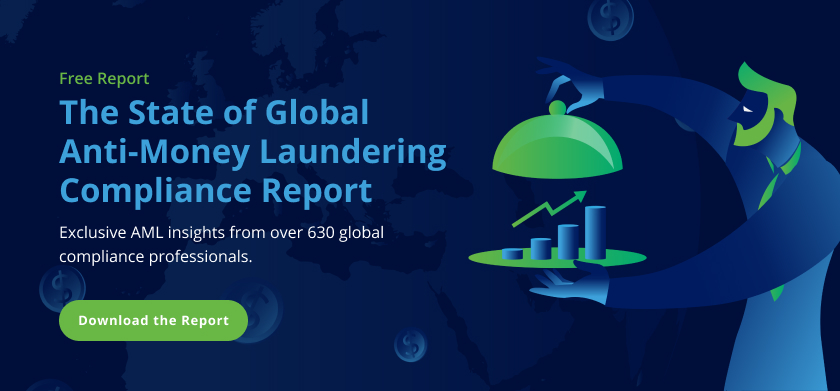
There’s no doubt 2022 was an unprecedented year for sanctions. Let’s reflect on 2022 with a final global sanctions update for the year.
Global Sanctions Update 1: Sanctions Grew More Complex
It’s not your imagination. Anyone who worked in compliance in 2022, saw firsthand how the nature of sanctions changed for good. With each monthly global sanctions update, compliance teams saw new levels of sanctions in recent memory. This includes the scale of new sanctions instructions, their complexity, reach, and the impact they have on your business. On that last point, frankly, we still don’t know what the long-term outcomes will be.
Russia is the eleventh largest economy in the world. Uncovering and unwinding business relationships are not only extremely difficult. It can also have material consequences for organizations and their global footprints. Case in point: look at the ongoing management of frozen funds of the Libyan Investment Authority.
Global Sanctions Update 2: Sanctions Volume is Rising
A leading data provider recently found there were around 6,000 additions and 7,000 changes to global sanctions lists between January and November of 2022. This is double the number reported in 2021. What’s more, countries such as Australia, Japan, Canada, and Switzerland were also active, adding designated individuals and entities to their specific country sanctions lists. They also indicated that a lot more were identified than were available simply on published lists, which adds to the sheer complexity of managing sanctions risk.
Global Sanctions Update 3: Trade Sanctions Prompt New Evasion Tactics
Sanctions put billions of dollars in trade in limbo. While trade isn’t permitted with Russia, supply and demand remain strong as ever. This creates further complications as new evasion strategies are employed. We’re already seeing trade diverted through the likes of Turkey and the UAE to avoid sanctions. Curiously, the recent announcements by certain European Union countries to stop publishing their beneficial ownership registries could be a direct response to protecting their business interests. This raises important questions about whether sanctions are effective or not. Certainly, the strength of the Rouble hasn’t been particularly impacted and is roughly where it was against the dollar in 2020. Trade deficits, however, are more significant now for Russia. Reportedly, the UK has frozen around £18.6 billion worth of sanctioned assets. This will hurt individuals and entities alike.
No End to Global Sanctions in Sight
It’s also fair to say that scale and scope of sanctions are not abating. The UK added around 1,200 new designated persons and entities in the last few months alone. There’s also a discussion on expanding sectoral sanctions to include IT services and the legal and architectural professions.
With the US recently sanctioning the Head of the Central Bank (Elvira Nabiullina) and the deputy prime minister (Alexander Novak), it’s clear where future sanctions are heading. If sanctions don’t have the desired outcome immediately, then perhaps over the next year they certainly will.
Looking Ahead to Sanctions in 2023
So what does this mean for practitioners and regulators as we head into 2023 and beyond? If we consider that there were no material fines for sanctions in 2022, then it’s likely that 2023 could be another busy year. It’s also worth noting that regulators could also target a lot of “low-hanging fruit.”
In late November 2022, the Office of Financial Sanctions Implementation (OFSI), created the “Price Cap exception” to the transportation of Russian crude oil and refined Russian oil products. This legislation is relatively light on detail and will likely cause significant implementation headaches as organizations seek to follow the oil price cap rules.
Another cause for concern is the imposition of “strict liability” under the Economic Crime (Transparency and Enforcement) Act of 2022, introduced by the UK government. Specifically, that OFSI can now impose a fine on a person (including corporate persons) who were unaware that its actions were a breach of sanctions laws: OFSI only has to prove that the person in question did in fact commit that breach. While this aligns more broadly with the US’ more stringent sanctions legislation, this significantly lowers the evidential bar OFSI must meet.
All of this means that there is significant uncertainty in the world of sanctions leading into 2023. This will affect how institutions can effectively and legally manage their risk exposure, with the potential threat of enforcement hanging over them like ‘“the sword of Damocles.”
Share this article:
Related Posts
0 Comments5 Minutes
Spotlight on Denmark: Fraud and Financial Crime Insights from ‘Den sorte svane’
The recent documentary mini-series "Den sorte svane" has sent shockwaves through Danish…
0 Comments9 Minutes
Enhancing AML Transparency with Smarter Data
Doesn’t it seem like new financial threats crop up in the blink of an eye? That’s why…
0 Comments10 Minutes
Enhancing Anti-money Laundering Systems Architecture
A speaker at a financial crime conference I recently attended summed up the problem with…

